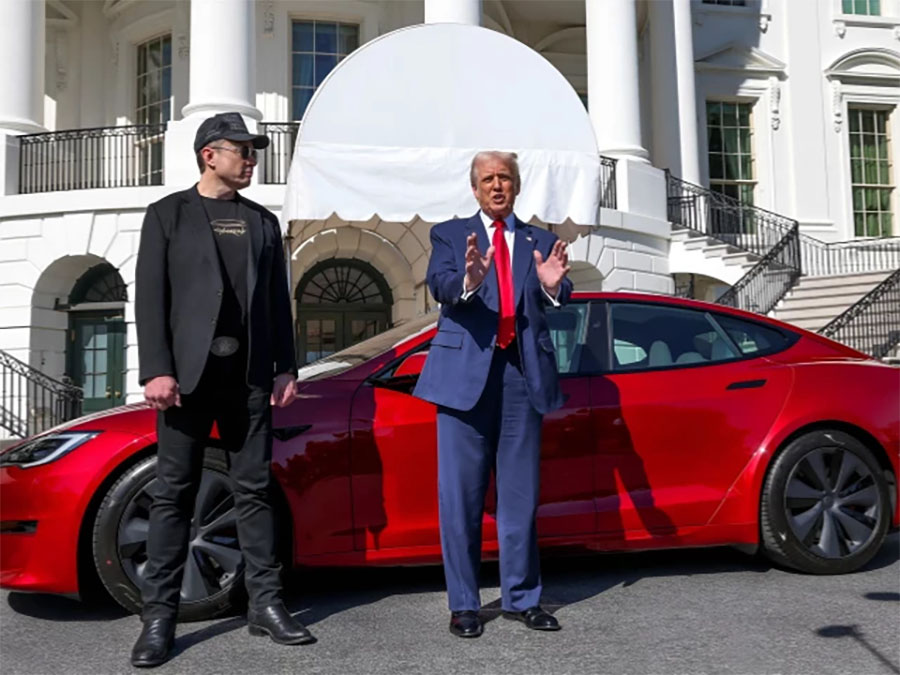Photo Credit: Getty Images
Tesla CEO Elon Musk announced plans to significantly reduce his involvement in Donald Trump's administration following a disastrous quarterly earnings report that revealed plummeting profits and sales. The electric vehicle manufacturer reported a 20% drop in automotive revenue and a staggering 71% decline in net income during the first quarter of 2025 compared to the same period last year.
"My time allocation to Doge will drop significantly," Musk stated during Tuesday's earnings call, referring to his leadership of Trump's Department of Government Efficiency initiative. He committed to devoting only "one to two days per week" to government matters going forward, a notable reduction from his current involvement.
Tesla's stock has shed approximately 40% of its value this year amid growing concerns about Musk's political activities. The billionaire contributed over $300 million to Trump's reelection campaign and has been a prominent fixture in the White House since the administration took office in January.
The company explicitly acknowledged the impact of politics on its business performance. "Changing political sentiment could have a meaningful impact on demand for our products in the near-term," Tesla warned investors in its quarterly update, declining to offer growth forecasts amid the uncertainty.
Protests and boycotts against Tesla have erupted worldwide in response to Musk's political alignment. Rather than acknowledging consumer concerns, Musk characterized the backlash as attacks from those who "try to attack me and the Doge team," while defending his government work as "critical."
Georg Ell, former Tesla director for Western Europe, offered insight into the situation: "If [Musk] focuses on the companies where he is extraordinary, I think people will focus once again on the quality of the product and experiences."
Trade policies have further complicated Tesla's outlook. Despite Musk's claim that Tesla is "the car company least affected by tariffs," he admitted the policies were "still tough on a company where margins are low." The company cited "rapidly evolving trade policy" as a significant threat to its supply chain and cost structure.
Trump's tariffs on China have placed particular pressure on Tesla's operations. While its U.S.-market vehicles are assembled domestically, the company relies heavily on Chinese-manufactured components, creating vulnerability to escalating trade tensions.
Investment analyst Dan Coatsworth of AJ Bell described expectations as "rock-bottom" following earlier reports that quarterly car sales had fallen 13% to a three-year low. "Tesla's problems are mounting," he warned, citing fierce competition and supply chain risks from Trump's trade policies.
Tesla shares rose more than 5% in after-hours trading following the earnings announcement, suggesting investors may have anticipated even worse results. The company pointed to artificial intelligence as a potential growth driver, though skepticism remains about whether this will offset declining vehicle sales.
As Musk prepares to reduce his political activities, beginning next month, Tesla faces the challenging task of rebuilding investor confidence and addressing fundamental business concerns while navigating a complex political landscape that its CEO helped create.


